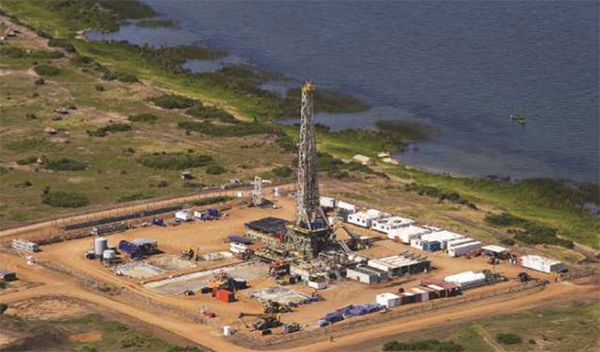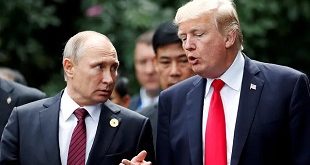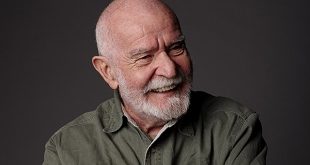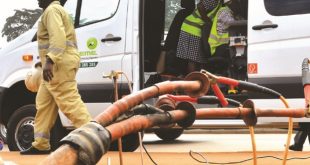
COVER STORY | By Independent Reporter | For Uganda, 2025 is packed with opportunity and peril as the year before the momentous 2026 that will witness the 7th general election under President Yoweri Museveni and, possibly, the nation’s first oil.
It’s the year when grand promises and policy changes agreed in previous years will be implemented and tested. It is action on the political front that will hog most attention as always in a pre-election year but the economic front will be equally interesting.
Top on the economy list will be the performance of the road infrastructure sector, the coffee sector, and the energy sector where the 20-year concession of the national electricity distributor, Umeme, expires naturally. The government has indicated that it will not renew the Umeme concession and will instead launch a national electricity company to carry out the distribution.
This time, the inevitable election spending explosion by President Museveni and the huge line up of political hopefuls will compete from equal if not bigger windfalls from the coffee boom and oil infrastructure money. Acting central bank governor Michael Atingi-Ego will have a busy year if he holds on to the post considering that moves towards change are escalating.
In its last Monetary Policy Statement for December 2024, the Bank of Uganda (BoU) announced that it expects core inflation to remain below 5% in 2025 which was expected rhetoric but wishful thinking in reality.
Typically, general election years in Uganda also create economic instability. Together with the monetary sector, foreign direct investment, diaspora remittances, the stock market, and general GDP figures take a nose dive.
Equally the shilling is battered and depreciates as foreign exchange streams dry up amidst expansionary fiscal activity. Inflation surges uncontrollably as does the trade deficit. Most pundits dread the 2011 scenario where the inflation rate jumped from a manageable 4% in 2009 to a whopping 19% in 2011. Other jumps were higher too though not as high as 2011. In the run-up to the 2016 election, inflation was 4% in 2014 and 6% by 2017. In the last election, inflation was 2% in 2021 but 7% in 2022.
The nation’s GDP takes similar battering in pre-election years. In the run-up to the last election, GDP growth was recorded at 6% in 2019 but dropped to 3% in 2020, the pre-election year. The election before that of 2016, GDP was 7% in 2004 but dropped to 6% in 2005. Before that in the run-up to the 2001 election, GDP was 8% in 1999 but dropped to 3% in 2000, the pre-election year. These drops in the rate of GDP growth are likely to be replayed in 2025.
Oil money
This pre-election year is different to the convergence of two likely black swan invents; the likely continuation of high international coffee prices and the already committed inflows in the oil sector. Construction of the US$5 billion oil pipeline is already ongoing and the looming election activity is unlikely to interfere with the investment capital inflows. The Ministry of Energy also plans to roll out a new oil and gas licensing round this financial year. Although Minister Ruth Nankabirwa indicated at the end of 2024 that Uganda was unlikely to hit its first oil target of 2026 due to financing and infrastructure challenges, activity continues unabated towards a new likely 2026 target.

Reports from late last year indicated that of the required 170 oil wells supposed to have been drilled by that date, up to 93 had already been developed.
Equally, Uganda’s oil sector suffered a setback when the Commercial Division of the High Court of Uganda early this month ordered the Uganda Revenue Authority to refund $45 million (plus interest) to Heritage Oil and Gas Limited. The court ruled that the tax body erroneously computed the Capital Gains Tax (CGT) when it omitted to add Heritage’s exploration costs of $150m to the cost base, in the sale of its assets to Tullow Oil in 2010.
That means URA collected US$45 million excess tax being 30% of the US$150 million. But URA has to pay a 2% per month in interest on that US$45 million going back to April 7, 2011 when the excess tax was collected. The total amount URA owes is currently computed at US$150 million and growing.
Coffee boom
Uganda’s coffee export reports recorded better news with their value hitting a record-breaking US$1.14 billion at the end of 2024, the highest in value in 30 years, according to experts.
According to a Bloomberg market report, global coffee production is on track to fall short of demand by 8.5 million bags in the 2025-26 season. This means Ugandan farmers can expect equally high prices in the next March – June season and possibly in the September –November season. The coffee boom is likely to reverberate widely as Uganda has opened up new coffee growing zones in addition to the central and Bugisu regions.
Coffee prices hit another record high on December 10, 2024 as concerns mount over global shortages, despite a recent drop in Robusta futures.
Volcafe, a major trader, lowered its production forecast for Brazil after a crop tour revealed the impact of a prolonged drought. According to Bloomberg, the country is expected to produce just 34.4 million bags of Arabica, which is down by about 11 million bags from a September estimate.
The Political front
On the political front, most attention is likely to be shared between the machinations President Museveni’s state and political apparatus will deploy to scuttle the opposition and how Museveni will tackle the shenanigans of his ambitious son; Gen. Muhoozi Kaineruga, who heads the army and is eager to succeed his octogenarian father as president.
Museveni team has in the past year done its ground work to ensure he does not have to deal with a troublesome opposition in 2026. With Museveni arch-challenger retired Col. Dr. Kizza Besigye safely locked away in jail over offences relating to security and unlawful possession of firearms and ammunition, it would appear that the president’s NRM bus is set on a clear road ahead.
This view is cemented by an apparent lacuna in leadership of the country’s divided opposition parties; both within the parties and between the parties.
Before he was jailed, Besigye was in the midst of behind the scenes activity to activate a new political formation called the Peoples Front for Freedom (PFF). Formation of the new party followed the break-up of Uganda’s erstwhile leading opposition party, the Forum for Democratic Change (FDC). The party, long divided along into pro-and-anti Besigye factions, split into two splinters in July 2023 after Besigye’s camp accused the side of party president Patrick Oboi Amuriat and his wingman; party secretary general Nandala Mafabi of operating in cohorts with their nemesis, Museveni. Apparently, according to the allegations, although Amuriat ran for the presidency in the 2021 election as an opposition candidate; his candidature was in fact fueled by billions of shillings that Museveni pumped into it as part of a secret pact. Amuriat’s camp deny the allegations but the harm has been done: Besigye is locked up, FDC is scattered.
Equally in disarray is the nation’s de jure largest opposition party, the National Unity Platform (NUP) of the maverick former music superstar turned politician, Robert Ssentamu Kyagulanyi aka Bobi Wine.
Bobi Wine’s has never show inclination to be a conventional political party as it principle almost unilaterally appoints and fires its leaders and representation. But it has relied on a mix of the star-power of known opposition big names and propped up relative unknowns. The party appears to have lost a big piece when it fell-out with one of its erstwhile vice president, former leader of opposition in parliament, the Nyendo-Mukungwe municipality MP, Mathias Mpuga. Once again the fallout was over money; Shs500 million awarded to Mpuga by the NRM strong-woman and Speaker of Parliament Anita Annet Among as a reward for great service as parliamentary commissioner. The money was seen as a ploy to stuff Mpuga’s war-chest in his battle to oust Bobi Wine from the leadership of NUP. Once again, true or false, the money has ensured that the Buganda region party is de facto divided between Bobi Wine and Mpuga factions to the benefit of Museveni.
These latest events follow Museveni successfully sucking into his control the other opposition party leaders; Norbert Mao of the Democratic Party (DP) and Jimmy Akena of the Uganda Peoples Congress (UPC). The net result is an opposition full of noises but little action to warrant anxiety for Museveni.
The Muhoozi factor
President Museveni who has already declared intent to contest the presidency for the 7th time in 2026, appears to have only one major challenge to his bid; his son, the UPDF Chief of Defence Forces, Gen. Muhoozi, appears eager to enter the fray.
The young 50-year old general appears to have used to his advantage a combination of serious soldiering expeditions in the DR Congo, Somalia, and South Sudan; serious diplomatic footwork with Rwanda, Ethiopia, Egypt and more; and frisky albeit risky Twitter drivel. The combination appears to have ensured he springs from an obscure son of the big man, his own man. Love him or hate him, Muhoozi is a recognizable figure locally and internationally. He can likely win an election – if his father quits.
Electoral politics typically throws up surprises. But the usual, predictable, surprise acts; the likes of Michael Mabike, Samuel Lubega Mukaaku, or Abed Bwanika are shriveled ghosts of their former personas. Equally, the voluble 58-year old Norbert will unleash his barrage of tired jokes but will not disturb Museveni. Equally aging Jimmy Akena is unlikely to be a late bloomer national stature politician. He is most likely content to ride on memories of his great father, the late president Apollo Milton Obote is his Lira fiefdom. That leaves Museveni –unchallengeable – in the 2026 ring.
 The Independent Uganda: You get the Truth we Pay the Price
The Independent Uganda: You get the Truth we Pay the Price



